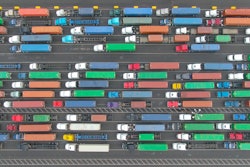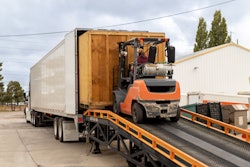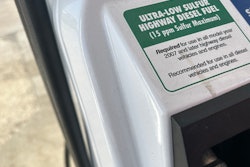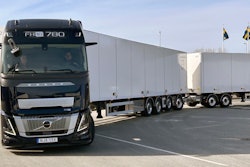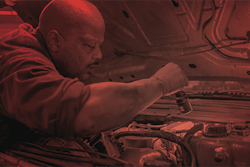‘The feasts are way too short, and the famines are way too long.’
When recently asked to describe the economic cycles of the truckload industry, that was the general summary of my answer. While this is a wonderful industry, it has a long history of financial cycles that create significant peaks and valleys.
Unfortunately, we have been sitting at the bottom of one of those valleys for some time now. The casual observer may ask a simple question: why? To understand this, you really need to understand the history of trucking in the United States.
 Dave Williams speaking at the Truckload Carriers Association Convention.
Dave Williams speaking at the Truckload Carriers Association Convention.
Not only did the government control commodities and lanes, but they also controlled the rates. The ICC was given the directive to provide the country with “just and reasonable” freight rates. But like many government programs that start with good intentions, there were unintended consequences. As a motor carrier, if your costs went up, all you had to do was submit a request for a rate increase to cover your increased costs and those rate increases were generally granted. It was a pretty good gig for those that were granted operating authority. The problem was that there was not a lot of incentive to be efficient, and freight costs were climbing. So, as part of the Motor Carrier Act of 1980, Congress made the decision to deregulate trucking in an effort to make our economy more competitive.
Under deregulation, the truckload industry as we know it today was born. These early truckload pioneers were highly entrepreneurial. They saw an opportunity to move full truckloads of freight very efficiently, without the expensive infrastructure and overhead that the previous models had relied upon. The shipping community soon jumped on the opportunity to move freight in larger shipments and reduce their costs in the process. From this shift in behavior, today’s large carriers such as J.B. Hunt, Swift, Schneider, Werner, and others grew and flourished.

